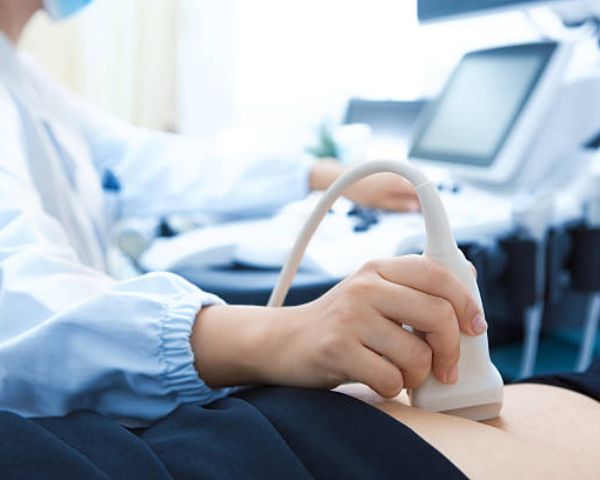What Does Pregnancy Fatigue Feel Like?
Mood swings, nausea, morning sickness, and swelling are just a few things that pregnant women feel. These symptoms can be straightforward overlook as fatigue. Everyone has a different experience when it comes to fatigue and it changes every trimester.
Here is the familiar feeling when you have fatigue.
-
You find it difficult to wake up in the morning
-
You lose focus
-
You get irritated easily
-
You feel tired all the time
-
You find it hard to complete daily tasks
It can be helpful to start a pregnancy journal and note down your symptoms.
Why Does Pregnancy Make You Tired?
Being tired during pregnancy is normal. This frequently occurs between the first (0 to 13 weeks) and last trimesters (week 27 to birth). This is because there’s more demand on your body, causing you to consume a lot of energy. Anxiety can be one of the reasons for feeling tired. Pregnancy anxiety shortens gestation and has negative effects on fetal neuro-development and pregnancy outcomes [1]. Furthermore, anxiety in pregnancy is more common than depression, estimated between 6.6-21.7%. [2].

When Does Pregnancy Fatigue Start?
Pregnancy fatigue may be an early indicator of pregnancy before a test can confirm it because it can possibly start at one week after knowing that you are pregnant. Additionally, the first 12 weeks of pregnancy is also a common time for fatigue to set in.
The main reason for early pregnancy extreme fatigue in the first trimester is straightforward; your body is gearing up for the coming months. Although it can vary from pregnancy to pregnancy, fatigue frequently get back on the third trimester even though it usually improves during the beginning of the second trimester.
How Long Does Pregnancy Fatigue Last?
Fatigue may continue to bother you for most of the nine months before delivery. Pregnancy hormones alter your body figure, emotions, diet, brain, physical look, and even your sleep patterns.
Saying that on your second trimester is frequently cited by pregnant women as being the simplest and most joyful because the sickness and fatigue start to subside. In general, your first trimester and third trimester is the time when you may feel more tired than usual.
What Causes Fatigue During Pregnancy?
First Trimester Fatigue
Hormone changes
Progesterone levels that significantly increase have been directly connected to tiredness. Additionally draining are the emotional highs and lows brought on by hormone fluctuations.
Metabolism Changes
Your system is producing more blood and a placenta. This increases your need for energy, which may also explain why you feel the need to sleep more often.
Increased heart rate
Nearly all women’s heart and circulatory systems are under stress throughout pregnancy. Your heart pumps more blood per minute and your heartbeat rises during childbirth as your blood volume increases by 30 to 50% to sustain your developing child.
Disrupted sleep
Pregnant women may experience a significant decline in the quality of their sleep due to difficulty getting comfortable in bed. This can often result in night time insomnia and cause fatigue during the day.
Digestion issues
Around 80% of pregnant women digestion problems and vomiting throughout the first trimester. Strong scents and tastes may become intolerable during this time, and some women may find certain vegetables and acidic foods challenging to digest. Eating large meals may also be challenging.
Morning sickness
The first few months of pregnancy is when morning sickness is much more prevalent. The majority of the time, symptoms then to subside in the second trimester.
Stress and anxiety
Generalized anxiety is believed to be highest in the first trimester. Common symptoms include constant worrying, restlessness, impatience, and trouble sleeping.
Back, hip, and pelvic pain
You may experience some back, hips, and pelvic aches while pregnant, and it can be challenging to identify the exact issue. Always contact your healthcare practitioner for guidance and treatment.
Second Trimester Fatigue
Even though things generally settle down in your second trimester, there is a possibility that you may experience frequent urination, leg cramps, and back pain.
Third Trimester Fatigue
The size of your baby will triple or perhaps quadruple throughout this trimester as they develop significantly. You could notice that symptoms from earlier trimesters persist and get worse. At this stage, you will be sleeping on your side, specifically on your left to reduce the chance of compression of blood flow to the uterus. So if you prefer to sleep on your back, it may be uncomfortable learning to sleep on your side which can cause sleepless nights.
You may also be visiting the restroom more frequently in this trimester. The increased pressure around your abdomen may make it difficult to cough, bend over, or pick up items on the ground. The most common musculoskeletal symptoms in pregnancy include low back pain or pelvic girdle pain. Due to the release of relaxin, your joints may have less stability and can cause more disability.[3]

Tips to Overcome Pregnancy Fatigue
Exercise
While you’re pregnant, the American College of Obstetricians and Gynecologists advises that you engage in at least 150 minutes per week of mild aerobic activity or exercise to increase blood flow, which makes it easier for your body to distribute oxygen across the body.
Stay on top of your nutrition
A good pregnancy diet can be a terrific method to maintain your energy levels and keep your blood sugar normal. Protein-rich foods are also wise selections as they provide you with energy for a longer period of time.
Take your pregnancy vitamins
Pregnant women are encouraged to take prenatal vitamins during pregnancy.
Stay hydrated
Drink plenty of fluids by consuming sufficient water and fluids during the day to prevent leg cramps at bedtime.
Get into the sunshine
Your body produces vitamin D whenever your skin is exposed to sunshine, so take some time every day to get some sun. The baby gets its vitamin D straight from the mother.
Rest, take a nap
Take pauses during the day, nap when necessary, and get as much sleep as you can since your body needs rest when feeling fatigued or when you’re feeling any pregnancy symptoms.
Keep your bedroom dark and cool
Keep your bedroom dark and for the best sleep possible, ensure the temperature in your room is lower than for the rest of the house.
Pamper yourself
Put on comfortable, loose-fitting clothing, curl up in a recliner with a great book and read for a few minutes. Allow yourself to immerse in activities you enjoy doing.
Accept other’s help
Ask and accept assistance from family or friends. This will give you some time to rest.

When Should I See My Midwife or Doctor About Fatigue?
If you are experiencing pregnancy fatigue and other symptoms like depression, and severe headaches, it is best to consult your doctor or midwife. There may be other conditions that require to be ruled out, for example, gestational diabetes. Otherwise, enjoy your pregnancy.
You may be interested in reading this if you are suffering with nausea during your pregnancy. There is also information about Unisom and B6 for morning sickness.
References
[1] Schetter, C. D., and Tanner, L. Anxiety, depression, and stress in pregnancy: implications for mothers, children, research, and practice. Curr Opin Psychiatry (2012)
[2] Somerville S, Dedman K, Hagan R, et al. The perinatal anxiety screening scale: Development and preliminary validation. Arch Womens Ment Health (2014)
[3] Bhardwaj, A., & Nagandla, K. Musculoskeletal symptoms and orthopaedic complications in pregnancy: pathophysiology, diagnostic approaches and modern management. Postgraduate medical journal (2014)








